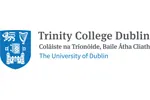About Germanic Languages, BA (Hons) - at Trinity College Dublin
What is the course about?Germanic Languages (TR026) is a four-year honours course taught wholly within the Department of Germanic Studies. In this course, you study three languages (German, Dutch and Swedish), linguistics and literature. Students enter with good German (at least a C1 in Leaving Cert.), begin Dutch in the first year and Swedish in the second, and all three languages are continued to degree level. The remaining two components are Linguistics and Literature (Modern and Medieval), which make the connections between the three languages and cultures you study.
What is linguistics? What will I study in literature? Linguistics means the study of language(s). Linguistics deals with questionssuch as why languages differ, why some - such as German, English, Dutch and Swedish - show certain similarities to each other, and how and why language has changed and will even change in our lifetime.
In Modern Literature, students encounter a selection of modern novels, short stories, poetry and drama, from the 18th Century to the present day. In Medieval Literature students have the opportunity to apply their knowledge of the older stages of German and Dutch to the study of literature, principally lyric and narrative works from the twelfth to fourteenth centuries.
Course structureThe first two years of the course are spent developing language skills, studying the history and society of Germany, the Low Countries and Scandinavia, and discussing linguistic and literary topics in introductory courses and seminars.
Students spend the third year studying abroad under the SOCRATES programme, usually at a combination of the universities of Leuven, Ghent (both in Belgium) or Groningen (Netherlands) and Tübingen or Würzburg (Germany). This year gives you an opportunity to develop academic and personal skills in a new environment. Students also spend a period in Sweden, perhaps teaching English at a Swedish school.
The final year in Trinity combines advanced language work with deeper study of linguistics and literature. During the last two years there is more scope for specialisation in either linguistics or literature.
Only a dozen students are admitted to Germanic Languages each year, so that much teaching can be done in small classes. The resulting sense of belonging to a group is reinforced through all kinds of social contacts: the German, Dutch and Swedish embassies, Dutch and German pub nights, and occasional 'ethnic' parties.
During the Senior Freshman year, students can participate in a Mentoring Programme which is provided in conjunction with the Careers Advisory Service. Students are matched with a graduate of the Department of Germanic Studies to share experiences in issues relating to study, the year abroad, career and work experience
Why study Germanic Languages?The Germanic Languages course introduces students to areas of study which they will not have encountered at school and combines professional competence with academic discipline. Anybody who successfully completes the course will have the qualities of any Arts graduate: intelligence, openness to new ideas, good communications skills, the ability to carry out independent work and to bring projects to a successful conclusion. Many employers are interested in such qualities, whatever the course studied.
In addition, students of this course will have an advanced knowledge of three continental (and EU) languages: extern examiners have been impressed by the very high levels of competence which our graduates have achieved.


